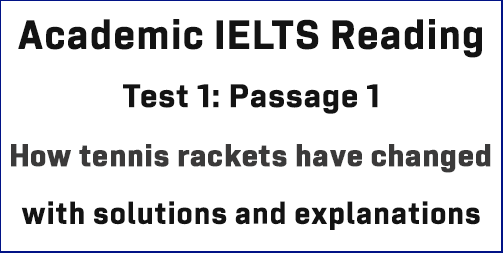IELTS General Training Reading: Cambridge 13 Test 2 Section 2; Why you should delegate tasks to team members & Choosing the right format for you CV; with best solutions and detailed explanations
This General Training IELTS Reading post focuses on solutions to IELTS Cambridge 13 Reading Test 2 Section 2 that has two texts titled ‘Why you should delegate tasks to team members’ & ‘Choosing the right format for you CV’. This is a targeted post for GT IELTS candidates who have big problems finding out and understanding Reading Answers in the GT module. This post can guide you the best to understand every Reading answer without much trouble. Finding out IELTS Reading answers is a steady process, and this post will assist you in this respect.
IELTS Cambridge 13 GT Test 2: GT Reading Module
Section 2:
The headline of the text: Why you should delegate tasks to team members
Questions 15-20: Completing sentences with ONE WORD ONLY
In this type of question, candidates are asked to write maximum ONE WORD to complete sentences on the given topic. For this type of question, first, skim the passage to find the keywords in the paragraph concerned with the answer, and then scan to find the exact word.
[TIPS: Here scanning technique will come in handy. Target the keywords of the questions to find the answers. Remember to focus on Proper nouns, random Capital letters, numbers, special characters of text etc.]
Question 15: Ensure team members are aware of any __________ there are regarding how the work should be presented.
Keywords for this question: ensure, aware, any, how the work, should be presented
In the second paragraph, take a look at lines 1-2 and 4-5, “When you give someone a project task to do, make sure that they have all the information they require to actually get on and do it. . .. . .. …. It also means informing them of any expectations you have, such as delivering it as a spreadsheet rather than a Word document.”
Here, make sure = ensure, they have all the information = team members are aware, delivering it as a spreadsheet = how the work should presented,
So, the answer is: exceptions
Question 16: Make sure support is made available if any _________ exist as to the team member’s ability to do the work.
Keywords for this question: make sure, support, made available, if any, exist, team member’s ability,
In the third paragraph, the author says in lines 1-2, “If you have concerns that someone doesn’t have the skills to do a good job (or they tell you this outright), make sure that you offer some help. . … . .”
Here, you offer some help = support is made available, someone doesn’t have the skills to do a good job = concerns exist as to the team member’s ability to do the work,
So, the answer is: concerns
Question 17: Ask the team member to detail how the work is developing, for example by providing a regular __________.
Keywords for this question: ask, to detail, how, work, developing, for example, providing a regular,
Lines 1-2 of paragraph no. 4 say, “Once you have given the task to someone, let them get on with it. Tell them how you expect to be kept informed, like through a report once a week. . .. . .. . .”
Here, Tell them how you expect to be kept informed = ask the team member to detail how the work is developing, like = for example, through = by providing, once a week = regular,
So, the answer is: report
Question 18: Don’t delegate administrative tasks simply because they are __________.
Keywords for this question: don’t delegate, administrative tasks, simply because,
In the fifth paragraph, line no. 3 says, “ . .. . don’t delegate tasks such as dull administrative ones, just because you don’t want to do them… .. .”
So, the answer is: dull
Question 19: Managers can ask a team member to check on the achievement of __________ at fixed intervals.
Keywords for this question: managers, can ask, team member, to check, achievement, fixed intervals,
In the sixth paragraph, lines 1-3 say, “One way to free up your time to spend on the more strategic and leadership parts of project management is to delegate things that are regular, like noting whether weekly targets have been met. .. .. .. .”
Here, weekly = at fixed intervals, whether.. .. . targets have been met = target achievement,
So, the answer is: targets
Question 20: If you _________ you risk delaying the whole project.
Keywords for this question: if, you risk, delaying, whole project,
Take a close look at the final paragraph, “So in summary, be clear, supportive, and don’t micromanage. Don’t become the problem on your project that prevents progress just because you’re afraid to leave people alone to get on with their jobs. .. . .. ..”
Here, Don’t become the problem on your project that prevents progress just because you’re afraid to leave people alone to get on with their jobs means you risk delaying the whole project.
So, the answer is: micromanage
The headline of the text: Choosing the right format for you CV
Questions 21-27: Completing notes
[In this type of question, candidates are asked to complete different notes with ONE WORD ONLY from the passage. Keywords are important to find answers correctly. Generally, this type of question maintains a sequence. However, we should not be surprised if the sequence is not maintained. Find the keywords in the passage and you are most likely to find the answers.]
Title of the note: CV formats
Question 21:
Chronological
– very common
– gives _________ in most cases
Keywords for this question: chronological, very common, gives, most cases,
In the ‘Chronological’ section, the author of the text says in lines 2-3, “It provides flexibility because it works in almost all circumstances, .. .. .”
Here, in almost all circumstances = in most cases,
So, the answer is: flexibility
Question 22:
– perhaps inappropriate if there are periods where _________ is not easy to explain
Keywords for this question: chronological, perhaps, inappropriate if, periods where, not easy to explain,
In the ‘Chronological’ section, the author of the text says in lines 2-3, “ . .. . . . the exception being if you have blocks of unemployment that are difficult to account for. .. .. .”
Here, the exception = perhaps inappropriate, difficult to account for = not easy to explain,
So, the answer is: unemployment
Question 23:
Functional
– appropriate for people who intend to follow a new _________ in their career
Keywords for this question: functional, appropriate for people, intend to follow, new, their career,
Lines 3-4 in the ‘Functional’ section say, “It also suits those who want to go in a different direction work-wise and change industry. … .. ..”
Here, suits = appropriate for, who want to go in a different = who intend to follow a new, work-wise = career,
So, the answer is: direction
Question 24:
– can create _________ in recruiters, so is best used with caution
Keywords for this question: Functional, can create, recruiters, best used with caution,
Again, in the ‘Functional’ section, the writer says in the second paragraph, “Because this format is often used to cover a patchy employment history, some interviewers may view such CVs with suspicion, so be very careful should you choose it.”
Here, interviewers = recruiters, be very careful should you choose it = best used with caution,
So, the answer is: suspicion
Question 25:
Achievement
– focuses mainly on what the person has achieved
– may be advisable if the person has no __________ in the area
Keywords for this question: achievement, focuses mainly on, what the person has achieved, may be advisable, if, person has no,
In the ‘Achievement’ section, the writer says in lines 2-3, “This can help show your suitability for a role if you lack direct experience of it.”
Here, This can help = may be advisable, if you lack = if the person has no,
So, the answer is: experience
Question 26:
Non-traditional
– enables use of attractive __________ to present data
Keywords for this question: non-traditional, enables, use of attractive, present data,
In the ‘Non-traditional’ section, lines 2-3 say, “. . . . You can present information through graphics, which can be more visually engaging and turn out to be an unusual but winning option. . .. ..”
Here, more visually engaging = attractive,
So, the answer is: graphics
Question 27:
– suits applications for jobs in marketing or ___________
Keywords for this question: non-traditional, suits, applications, jobs in marketing, or,
Again, in the ‘Non-traditional’ section, the final few lines say, “. . .. a highly creative CV format is only really appropriate for creative and artistic sectors, such as those involving promoting products, though it would also work for the media too.”
Here, promoting products = marketing, though = or,
So, the answer is: media
© All the texts with inverted commas used in this post are taken from Cambridge IELTS Series 13 GT Test book
Click here for solutions to Cambridge 13 GT Test 2 Reading section 1
Click here for solutions to Cambridge 13 GT Test 2 Reading section 3



